
The first senior 'Olympic' Combined event took place at the Innsbruck 2018 World Championships last weekend. Following multiple rounds of qualifiers, semi-finals and finals in the individual discipline competitions, the 6 top-ranking Combined athletes across Speed, Boulder and Lead competed in a separate Combined final in one day, involving three rounds of Speed, a Boulder final and a Lead final.
Notably, in both the men's and women's competitions, the competitors who amassed enough points for the Combined final were all top-performing specialists in Lead and Boulder. 5 of the 12 athletes across both sexes were Japanese, with 3 men and 2 women qualifying. Issues of fatigue and skin condition affected the athletes' performances, which the routesetters appeared to have accounted for in the Lead and Boulder finals.
The Combined final ranking is calculated by multiplying an athlete's ranking points in each discipline in the Combined final, e.g. a 1st, 4th, and 6th place would score 24 points (1 x 4 x 6). Points are then ranked, with the lowest number of points winning (due to higher rankings achieved across the three disciplines).
Combined Finalists
Women
Janja Garnbret (SLO)
Jessica Pilz (AUT)
Akiyo Noguchi (JPN)
Miho Nonaka (JPN)
Petra Klingler (SUI)
Sol Sa (KOR)
Men
Kai Harada (JPN)
Tomoa Narasaki (JPN)
Jakob Schubert (AUT)
Kokoro Fujii (JPN)
Adam Ondra (CZE)
Jan Hojer (GER)
The order of disciplines in the Combined final was Speed, Bouldering, Lead, as is expected in Tokyo 2020.
In the women's Combined Speed final, Miho Nonaka (JPN) pipped Jessica Pilz (AUT) in the first race, but Pilz 's quick time sent her to the semi-final alongside 1/4 final winners Petra Klingler (SUI) and Sol Sa (KOR), who eliminated Janja Garnbret (SLO) from contention. Nonaka slipped early in the next race and Pilz capitalised to advance by 0.5 seconds, and Sa beat Klingler. Klingler placed 3rd after a false start from Nonaka in the small final, and Sa took an early lead with 1st place ahead of Pilz in Speed and the fastest time of the round (9.273 seconds).
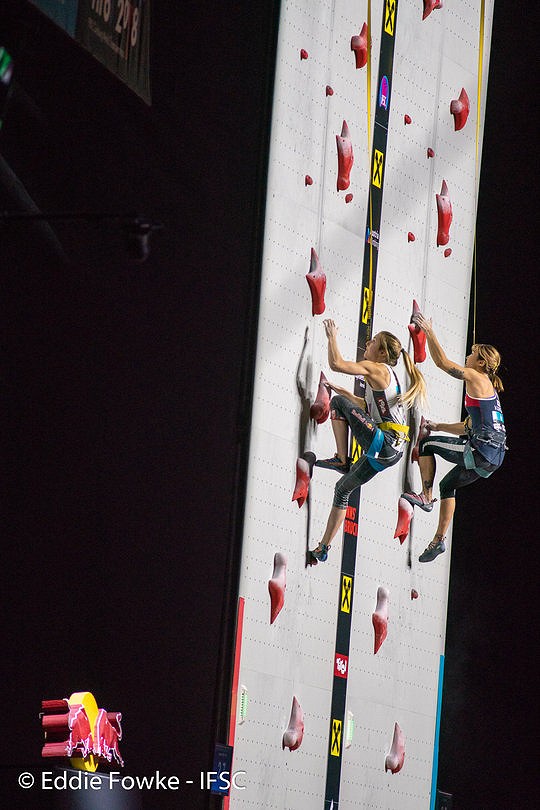
In the Boulder final, Garnbret dominated the round with 4 tops. Klingler, Akiyo Noguchi (JPN) and Nonaka completed two tops. Garnbret only needed to score the zone point on the fourth and final problem to win, but she topped it nonetheless. Sa jumped from 5th to 2nd place with a last-minute top on problem 4. Sa's 1st place in Speed and 2nd in Boulder ranked her in provisional 1st place ahead of the Lead final (2 points).
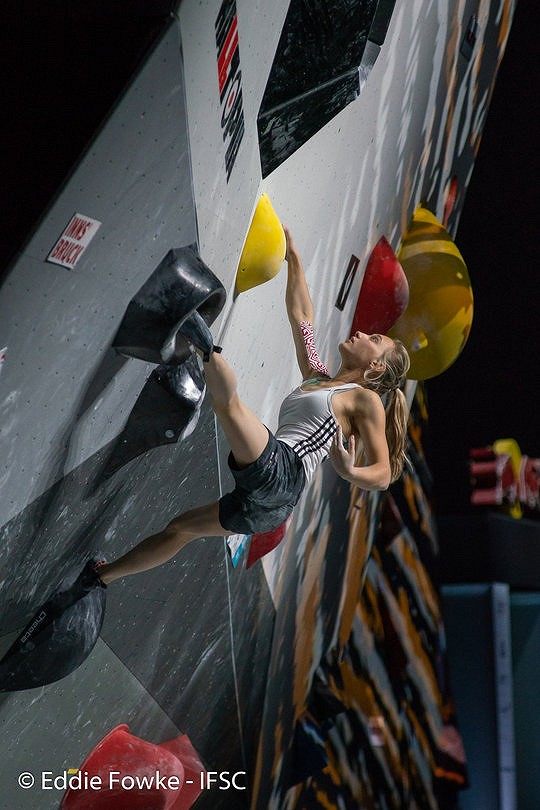
The Combined title was decided in the Lead final. Pilz topped with one minute to spare, putting the pressure on Garnbret and Sa. Garnbret stayed composed and completed a quicker top to become Combined World Champion in addition to Boulder World Champion, which she won just two days before. Sa reached the middle section to place 2nd in the Combined, and Pilz finished 3rd at home in Innsbruck.
For the men, Jakob Schubert advanced to the final round in Speed, eliminating Tomoa Narasaki (JPN) after a false start and racing past Kai Harada in the semi-final at the last move. Only Jan Hojer (GER) beat Schubert, eliminating Adam Ondra (CZE) in the first round and Kokoro Fujii (JPN) in the second with the fastest time of the day (7.146 seconds). Hojer raced to another quick time in the big final against Schubert to start off the Combined finals in provisional 1st place. Fujii outpaced teammate Harada in the small final.
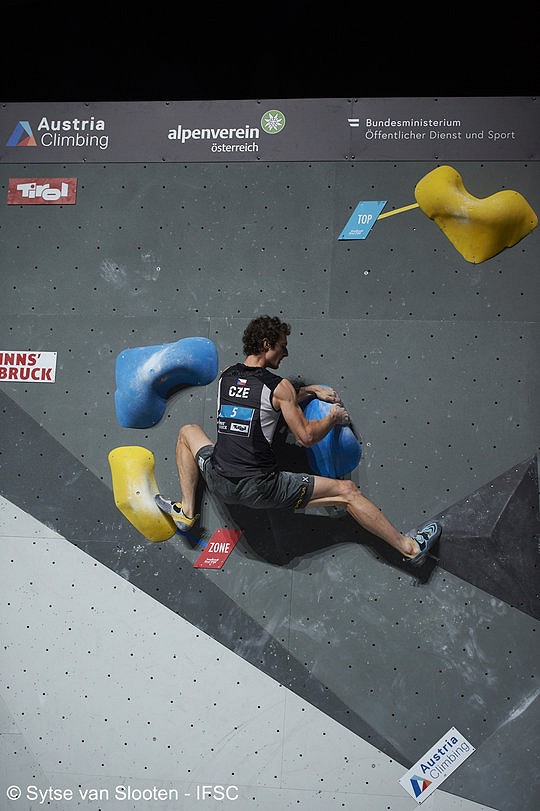
In the Boulder final, Fujii, Harada and Schubert flashed the first problem (M1), while Ondra managed a top on his third attempt. Both Ondra and Schubert flashed the second problem. Multiple finalists topped M3, including Schubert who stuck the jump and topped before time ran out. The results were unchanged following 6 flashes of M4, keeping Schubert in the lead in the Combined results and Hojer and Ondra trailing not far behind.
On the Lead final route, Ondra surpassed previous athletes to set a high point near the top hold, and Hojer fell in the middle section to place 3rd in the Combined final. In order to knock Ondra off the top spot in Combined, Schubert had to pass Hojer's 3rd place score, which he managed. Schubert fell in the final section to add the title of Combined World Champion to his Lead World Champion win, both in front of a home crowd in Innsbruck.
With Schubert's victory in the Combined final on Sunday and both Schubert and Pilz's earlier wins in Lead, Austria won the most gold medals (3) at the IFSC World Championships 2018 and matched Slovenia for the most medals in total (4). Slovenia placed 2nd in the medal table, led by Garnbret's two victories.
Results



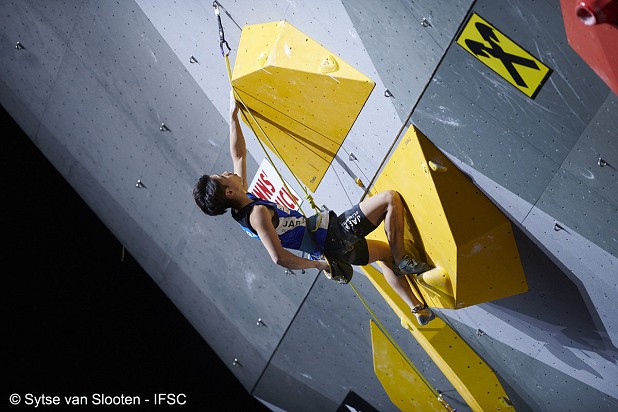
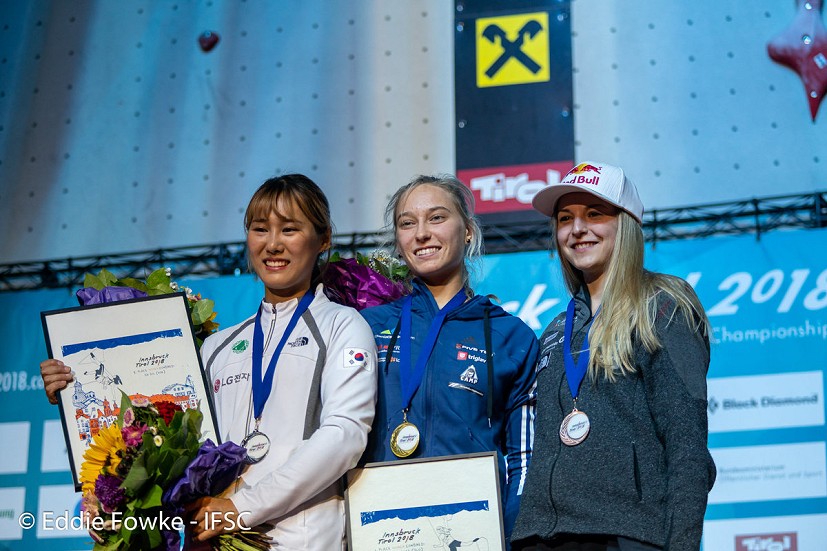
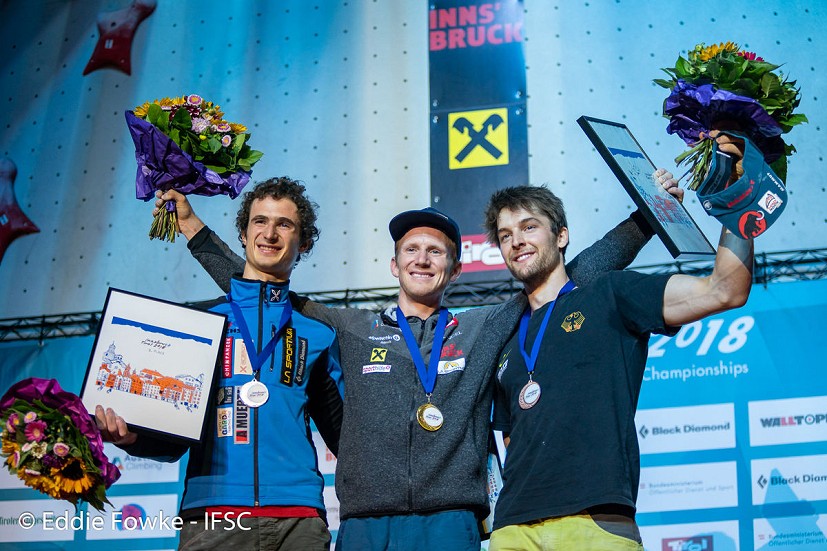
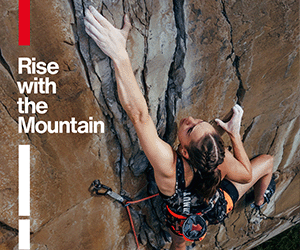

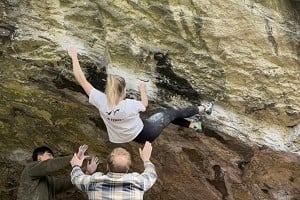
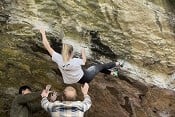
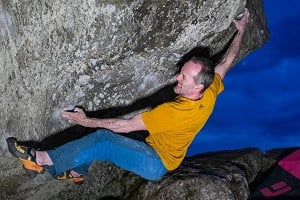
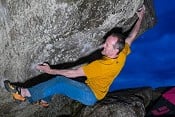



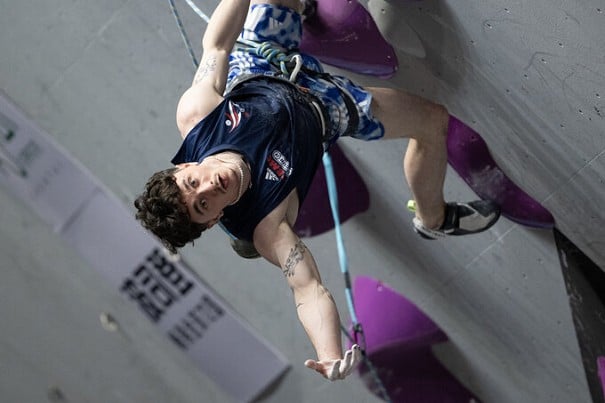
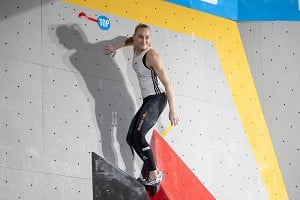
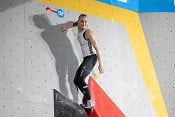
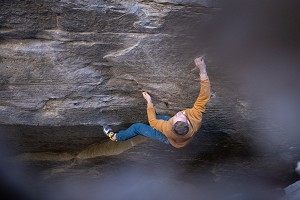
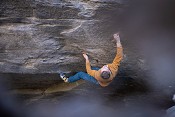
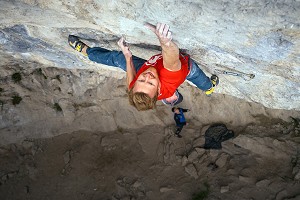
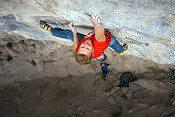
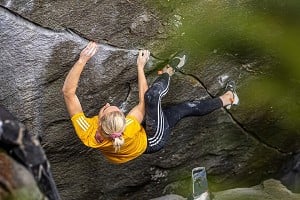
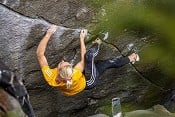
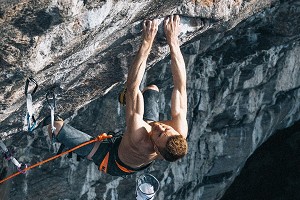
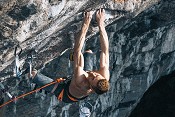
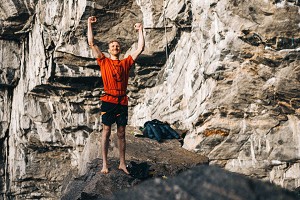

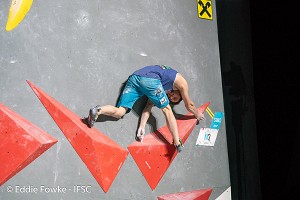
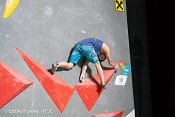
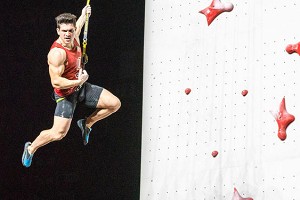
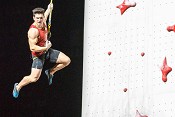
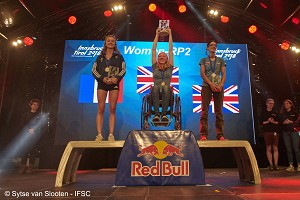
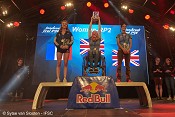
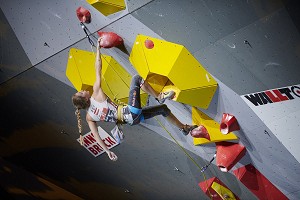
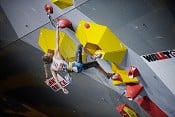
Comments
What format did the speed take?
I really enjoyed watching this, but, sadly, the first outing for the "Olympic format" revealed a weakness which many had always suspected would be there.
1. Speed specialists are a different breed, so don't fare well in the other two disciplines, and therefore don't make it to the final.
2. For non-speed specialists, i.e. everyone in the final, speed climbing is something of a lottery, as witnessed by the number of false starts and slips, notably in the women's event.
3. To a degree, the effect is like multiplying the bouldering and lead scores by a random number between one and six.
If this pattern is repeated in the Olympics themselves, I hope that the powers that be will be persuaded to separate the events at future games, rather than the alternative - to chuck climbing out altogether.
3 rounds - 3 races in 1/4 finals, then semis with two races, then a big and small final round to decide the podium.
Page 94 here has a diagram: http://www.ifsc-climbing.org/images/World_competitions/Event_regulations/IFSC-Rules_2018_V1.5.pdf